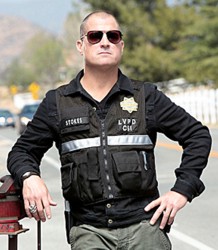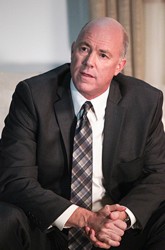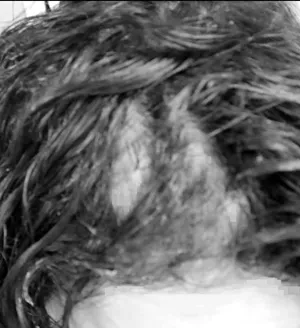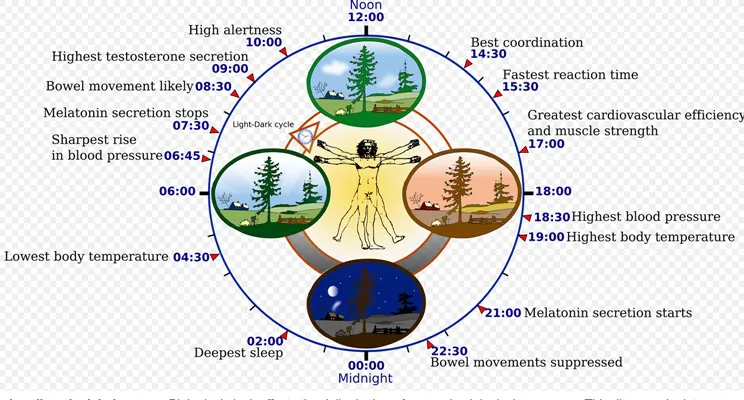
Thin Hair to Hair Loss
Thin Hair to Hair Loss Shemar Moore as Derek Morgan on the CBS drama CRIMINAL MINDS - Photo: Cliff Lipson/CBS ©2011 CBS Broadcasting Inc. All Rights Reserved
Shemar Moore as Derek Morgan on the CBS drama CRIMINAL MINDS - Photo: Cliff Lipson/CBS ©2011 CBS Broadcasting Inc. All Rights ReservedOne of the most troubling and still under-recognized medical problems for people today is thin hair to hair loss.
The hair loss industry, just in the past five years, has made great gains in viable treatment options. Unfortunately there is still a lot of misinformation about this challenging situation.
There have been a lot of changes in how people with thin hair to hair loss issues are viewed by society. Although not everyone with thinning or hair loss will agree, there is a much more accepting attitude towards the condition.
Society's Attitude Adjustment
Even ten years ago men and women with thin hair to hair loss were sometimes shunned in school, dating, romantic and business situations.
Shaved heads by balding men has transitioned from being considered unattractive to being considered hot and sexy.
Thin Hair To Hair Loss Is More Challenging For Some Women
Women with thin hair to hair loss issues used to hide under wigs, hats, hair accessories and at home to avoid criticism.
 LL COOL J (Special Agent Sam Hanna) - Photo: Sonja Flemming/CBS ©2013 CBS Broadcasting, Inc. All Rights Reserved.
LL COOL J (Special Agent Sam Hanna) - Photo: Sonja Flemming/CBS ©2013 CBS Broadcasting, Inc. All Rights Reserved.Due to the large number of female celebrities who've shaved their heads due to cancer, to show support for friends with serious illness or for movie roles, women with thin hair to hair loss conditions receive less public scrutiny.
Although society, in general, has changed their views and reactions to people with thin hair to hair loss difficulties, the people with those challenges may still be suffering from the condition.
Women suffering from thinning hair often describe their challenge as devastating which can seriously damage their self esteem and feeling of attractiveness.
Even though society has become more accepting of thin hair to hair loss issues, there are still obvious prejudices in some segments of the population.
General Causes Of Thin Hair To Hair Loss
Hair may thin for a wide range of reasons which may include, but not be limited to:
 Nick Stokes (George Eads, right) Photo: Richard Cartwright/CBS ©2014 CBS Broadcasting, Inc. All Rights Reserved
Nick Stokes (George Eads, right) Photo: Richard Cartwright/CBS ©2014 CBS Broadcasting, Inc. All Rights Reserved1. Genetics and hereditary patterns
2. Normal aging changes3. Serious illnesses such as diabetes, cancer, heart disease or related
4. Drug reactions since as from chemo or radiation or long term drug therapy5. Natural or drug triggered (birth control) hormonal changes including puberty, pregnancy, menopause or similar
6. Different types of life related stress7. Grief and long term bereavement
8. Poor nutrition and lack of proper vitamin therapy9. Sudden and/or extreme weight loss or weight changes
10. Thyroid disease due to related health issues or aging11. Excessive consumption of sugar, nicotine or similar stimulants
12. Use of chemical hair treatments including perms, chemical relaxers, straighteners,hair color or similar harsh treatments.
13. Overuse of hot hair styling treatments (blow dryers, irons, curlers) and/or harsh styling tools such as damaging brushes14. Wearing hair tightly pulled at the hairline or on other parts of the scalp.
There can be other thin hair to hair loss triggers which may or may not be included in the list.
Steps To Take When Dealing With Thin Hair To Hair Loss Issues
 Michael Gaston Returns as CBI Director Gale Bertram. Photo: Sonja Flemming/CBS ©2013 CBS Broadcasting, Inc. All Rights Reserved.
Michael Gaston Returns as CBI Director Gale Bertram. Photo: Sonja Flemming/CBS ©2013 CBS Broadcasting, Inc. All Rights Reserved.Although the onset of thinning hair can be terrifying, try not to panic. Some hair loss experts have tied increased anxiety over hair loss to an acceleration of the condition.
Instead of freaking out, take a deep breath and step back.
Considering following the steps below:
1. Do a hair thinning evaluation - If you're going to address the challenge, you need to understand what may have triggered the situation.
Make an exhaustive list addressing when you first noticed the thinning and/or loss and at what sites on your scalp.
Have you changed anything significantly in your life which might have triggered hair loss including sudden weight gain and/or loss, serious life related stress or other changes.
If or when you consult an expert they will need to do a complete hair thinning history and will need to know what may have triggered your current condition.
2. Find a hair loss doctor you trust - While there are lots of hair loss specialists available, the key is finding one you trust. Dealing with hair thinning and/or loss can be a long journey.
Find a doctor and/or specialists you really trust will listen to your concerns and be willing to work to help you find solutions you can live with.
3. Be open to alternative therapies - While medical doctors and dermatologists can offer prescription drugs, alternative physicans can offer herbal, nutritional and related treatments. Many people see great results with acupuncture, acupressure, massage and related treatments.
Some herbs can be helpful in slowing down or stopping hair thinning. Do your research and keep an open mind.
4. Do your research - Over the past few years hair thinning and hair loss treatments have come a long way. There are a dizzying array of treatment options which never used to exist before.
 Chi McBride - Hawaii Five-O - Photo: Best Possible Screen grab/CBS ©2013 CBS Broadcasting, Inc. All Rights Reserved.
Chi McBride - Hawaii Five-O - Photo: Best Possible Screen grab/CBS ©2013 CBS Broadcasting, Inc. All Rights Reserved.Don't jump into any major decisions or make long term commitment without looking at all your options and doing research.
Summary - Thin Hair to Hair Loss
Although one of the most troubling and still under-recognized medical problems for people today is thin hair to hair loss.
The good news? There are things anyone facing this challenge can do to find options and solutions.
Disclaimer: This blog is based upon my own personal opinion. All content provided in this blog is for informational purposes only.
Hairboutique.com makes no representations as to the accuracy or completeness of any information on this site or found by following any links on this site. All images are credited and constitute fair use.
This site strictly follows all DMCA requirements.Social Media Network Information
Please follow us on Twitter at: https://Twitter.com/HairBoutique. I look forward to meeting new people from all walks of Twitter and learning from their Tweets.


















